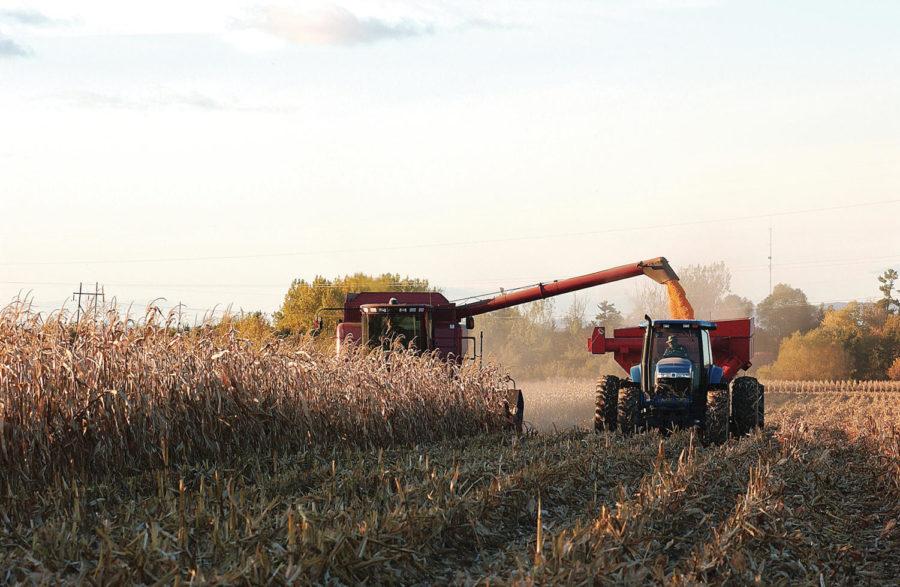Loss of farm bill puts pressure on food stamps
Farm Bill Expired
October 15, 2012
While the recent expiration of the latest farm bill might sound like it only affects farmers, the loss of this bill could impact many Iowans and could send us back to the original 1940s legislation.
The Food, Conservation and Energy Act of 2008, as the bill is officially known, provides subsidies for farmers as well as grants for renewable and efficient energy systems on farms. The act also funds the Food Stamp Program, which more than 12 percent of Iowa’s population is currently using. In total, over 45 million Americans are on food stamps.
“The lion’s share of the money in the farm bill was devoted to food stamps,” said Mack Shelley, university professor of political science and statistics at Iowa State.
“Students, almost by definition, are poor,” Shelley said. “For a lot of students, without food stamps, they would be hard pressed to make ends meet.”
The effect on farmers, however, will not be felt for a while.
“The commodity program that farmers mostly participate in has their 2012 crop already covered by the old farm bill, so it would be the 2013 crop that won’t have subsidies,” said Bruce Babcock, professor of agricultural economics. “So next fall is likely that, without a farm bill, farmers would notice something.”
Even if a new farm bill does not pass through the legislature and farmers next year do not have these subsidies, the farmers will not take a major loss. Of the $17.6 billion farmers make, only $500 million comes from these direct payments from the government.
“Farmers are not reliant; they don’t need the subsidies,” Babcock said. “There will be a loss. They’ll get less money, but it’s not like they’ll go out of business.”
The reason a new farm bill was not enacted when the old bill expired is political, specifically due to the different opinions of the two parties.
“The politics of the farm bill are tied up more so by food stamps,” Shelley said. “The really controversial part is the food stamps.”
It may take another month or so before a new farm bill is passed. Shelley believes it will not happen until after the election results are known, which would be a few days after Nov. 6. After that it will depend on which party has majority in Congress.
“If the Republicans come out ahead, they are definitely going to push ahead with major reductions in food stamps,” Shelley said. “If the Democrats win, they’re going to maintain the status quo essentially.”
The Republican vice presidential candidate Paul Ryan’s proposed budget cuts $11 billion in food stamp expenses.
“The conservation expenditures and especially the food stamps are definitely on the Republican hit-list,” Shelley said. “The Democrats, particularly on food stamps, want to continue to maintain and maybe even increase support for those parts of the bill.”

















